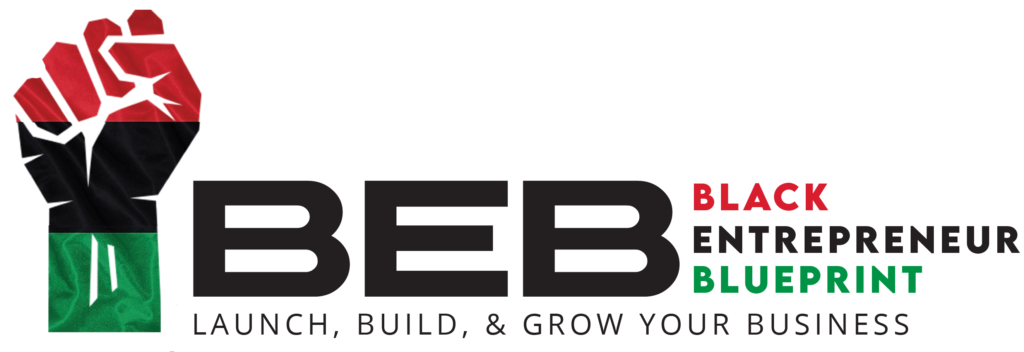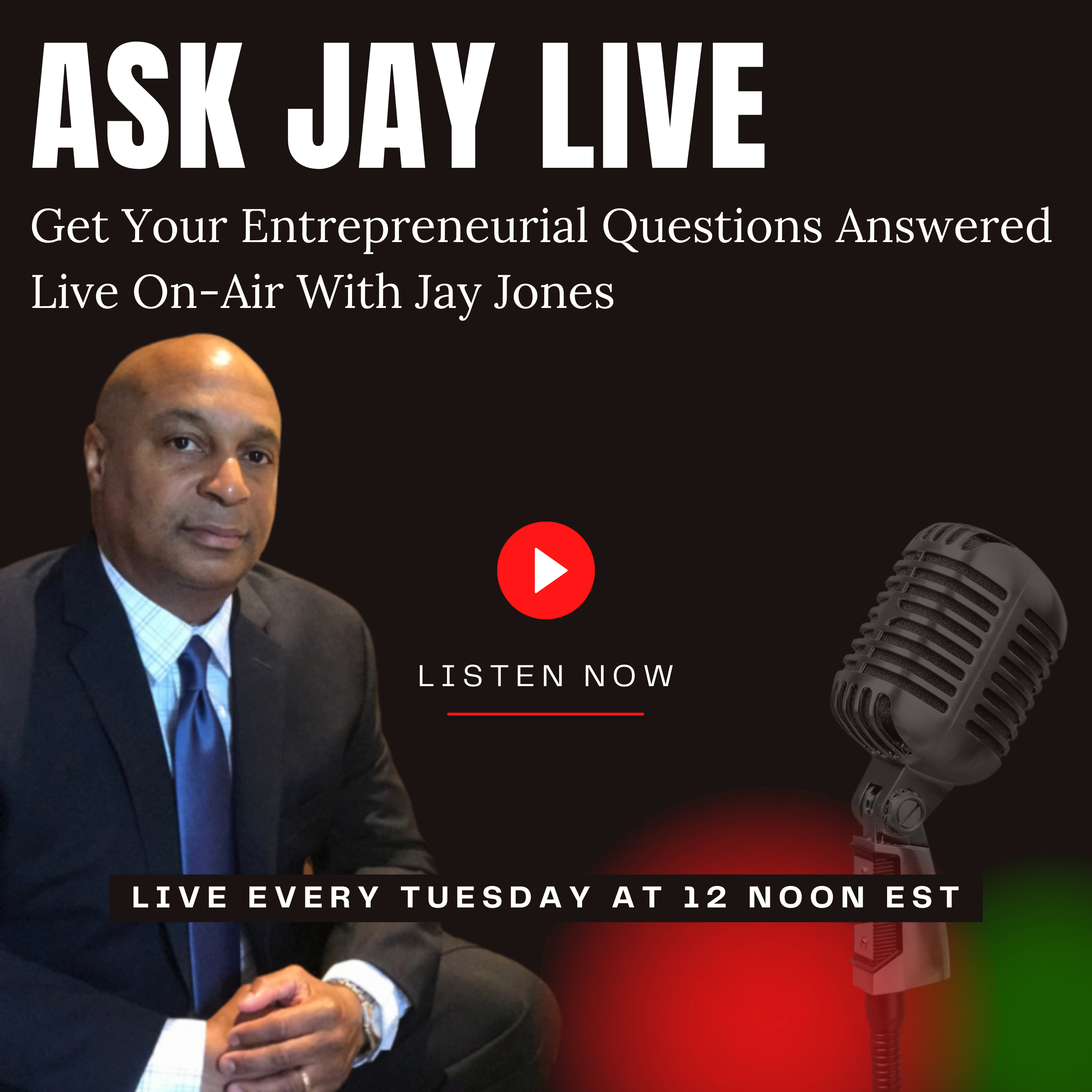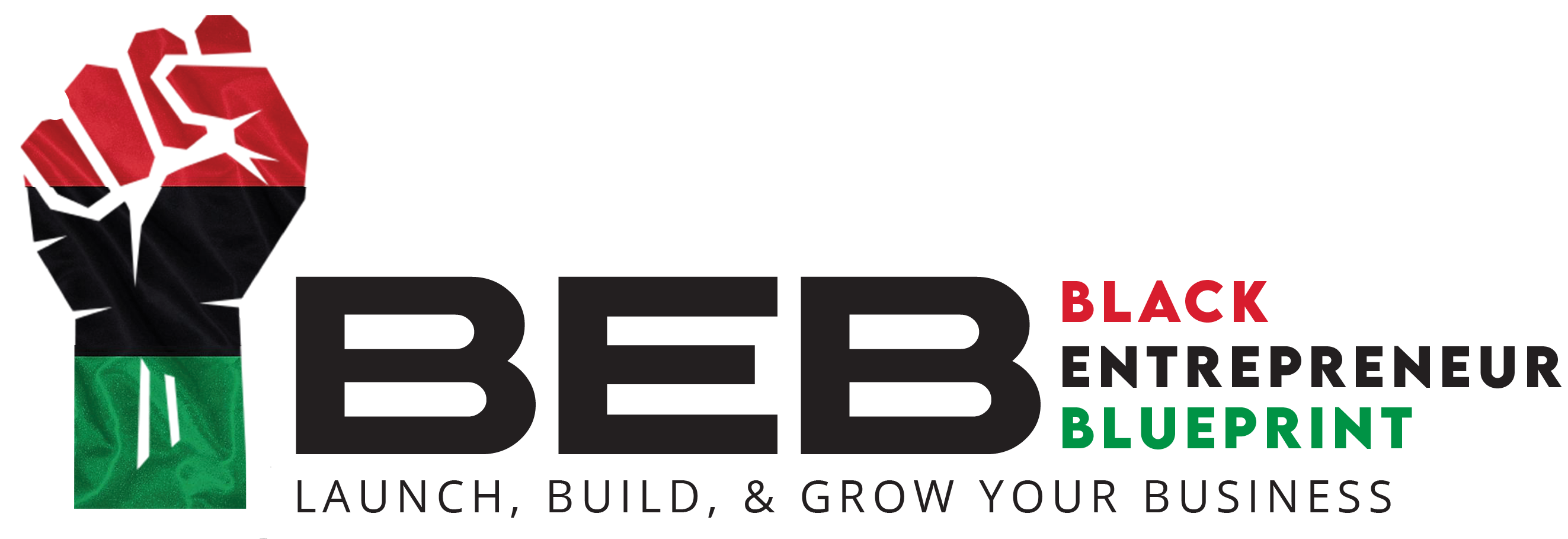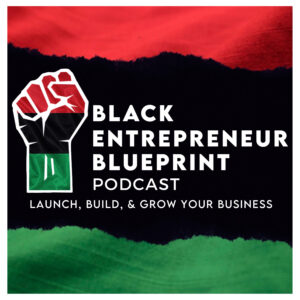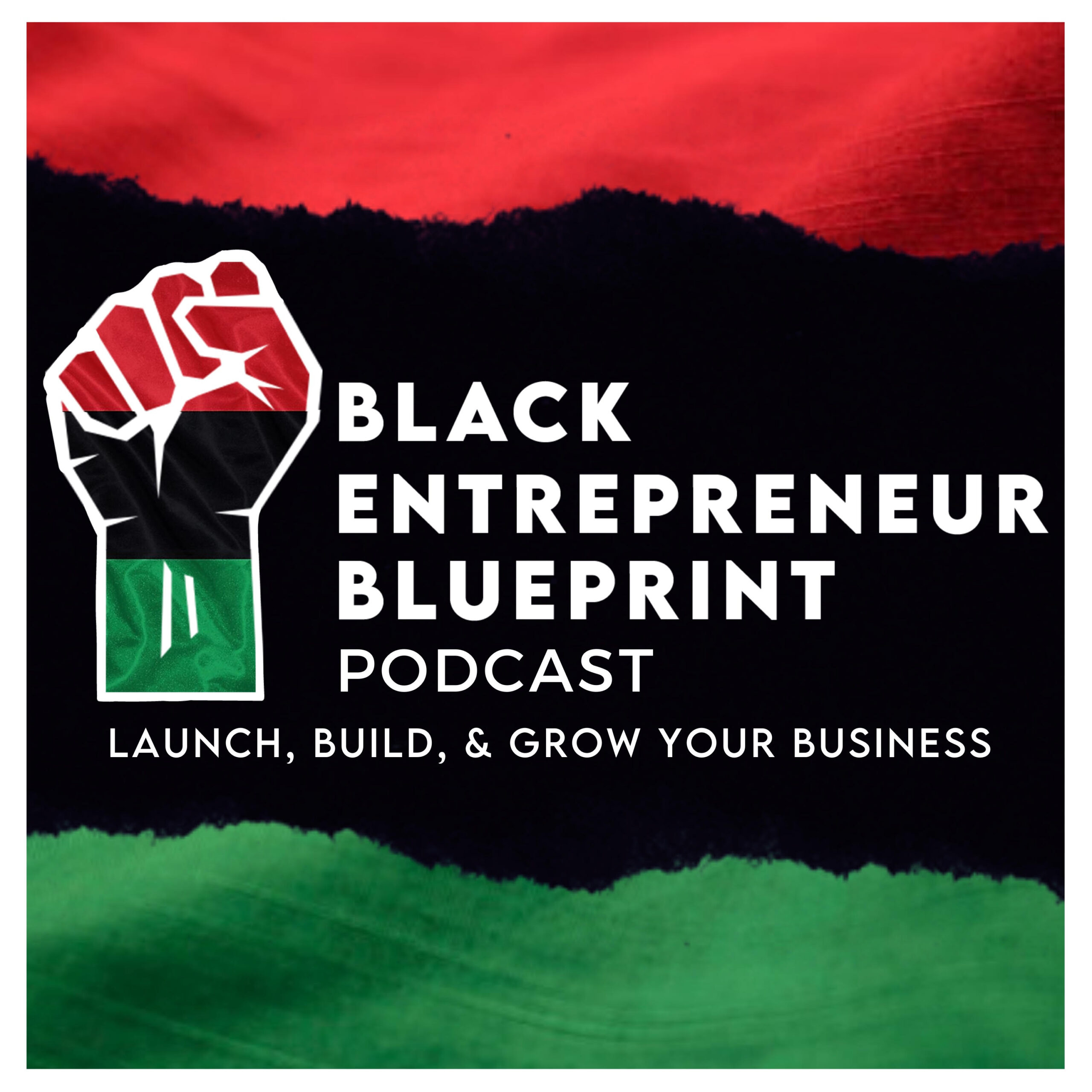Black consumer buying power is projected to reach $1.8 trillion dollars by 2024 but only two cents of every dollar is spent with Black-owned businesses. Why do Black people feel that it’s okay to buy from other ethnicities when other ethnicities don’t buy from Black-owned businesses?
On today’s Black Entrepreneur Blueprint podcast episode number 474, Jay discusses and dissects the mindset of the Black consumer and gives several actions we can take to reshape our consumer spending habits to improve our own community and help build wealth.
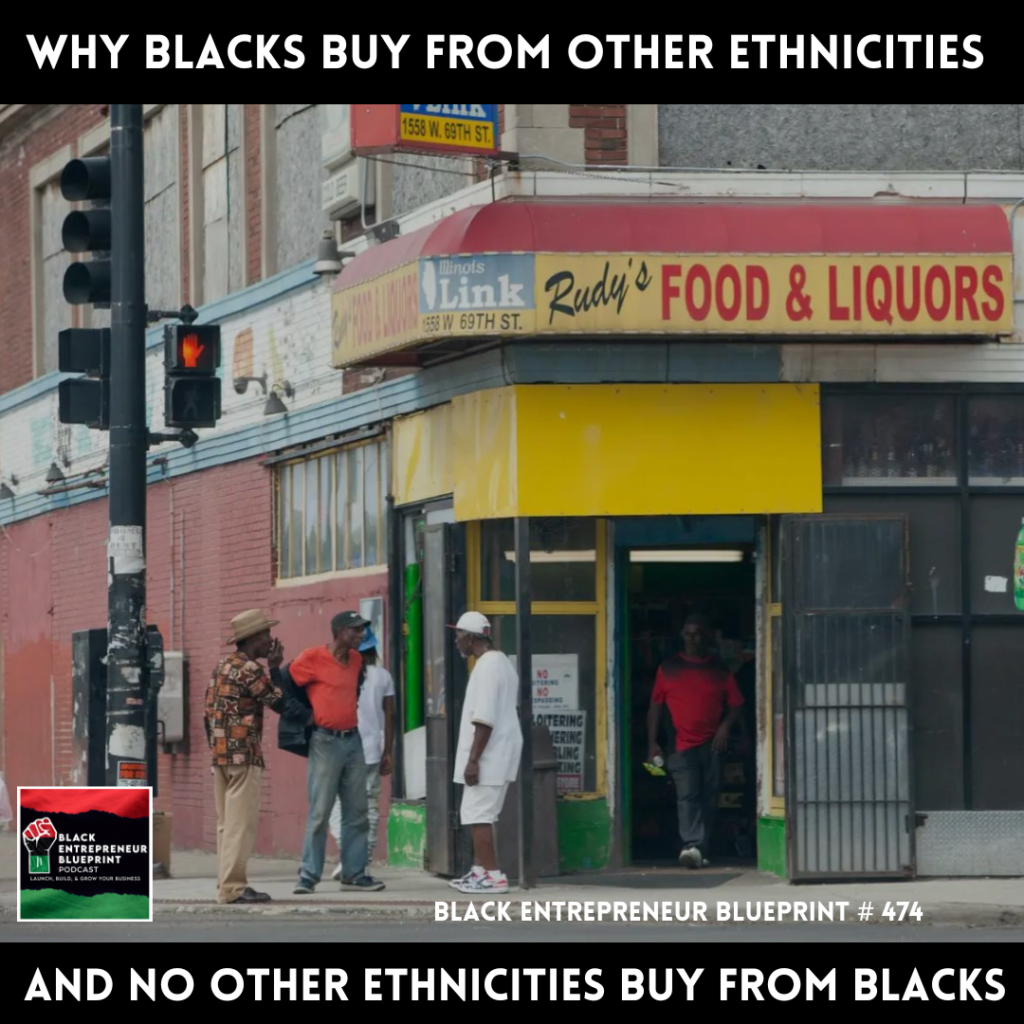
LISTEN TO THE FULL PODCAST EPISODE
BLACK ENTREPRENEUR BLUEPRINT SHOW NOTES – EPISODE 474
WE ARE SUPER CONSUMERS THAT MAKE EVERYBODY ELSE RICH
Black people spend 2 Billion a year on Air Jordans, 4 Billion a year on liquor, 20 Billion a year in haircare and beauty products, and 1 Billion dollars a year on fast food.
Every other ethnicity counts on you to shop outside your community, but they all shop inside theirs and don’t support Black-owned businesses.
Why Black People Are Top Consumers But Lack Wealth (Neilsen Stats)
- Lack of Access to Resources and Financial Education – Financial literacy isn’t high amongst American adults in general. But in a study, Black people answered 38 percent of financial literacy questions correctly, and only 28 percent answered more than half correctly.
Low financial literacy also influences buying and investing habits. Black people have a tendency to get rid of assets too early or not acquire them at all, according to a TIAA research study. These barriers hinder sound financial decision-making as well as good financial management.
- Expensive Spending Habits – The data shows that Black people like to shop. However, too much reliance on consuming products and services rather than producing them.
Nielsen reported that 52 percent of Black people find in-store shopping relaxing, compared to 26 percent of the total population. And about half of Black consumers say they enjoy wandering the stores looking for new, interesting products.
The Role Of Marketing In Black Consumption Practices
A Nielsen report stated that Black consumer spending is highly influenced by advertising. Black people reported being 42 percent more likely than the rest of the American population to respond to mobile ads. They’re also more likely to respond to ads on television, radio, and the Internet.
African Americans are more likely than the total population to agree that advertising provides meaningful information on most platforms, including mobile (42% higher), television (23% higher), radio (21% higher), and the Internet (18% higher).
Physical appearance reflects a sense of cultural pride and self-expression in the Black community. This is evidenced by the top spending priorities for African Americans from everyday soap to luxury handbags. (Wearing your money on your back or your feet)
- African Americans outspend the total market on personal soap and bath needs by nearly 19% ($573.6 million).
- Men are making an impact with grooming habits, outpacing the total market by 20% on toiletry items.
- Blacks are 20% more likely than the total population to say they will “pay extra for a product that is consistent with the image I want to convey.”
- They are also more likely to say they shop at high-end stores including Saks Fifth Avenue (63%), Neiman Marcus (45%), and Bloomingdales (24%).
While online shopping grows, African Americans continue to head to physical stores for the personal touch and feel experience—but with more discerning eyes. (since many of our Black businesses are online, we fail to support them)
- More than half (52%) of African Americans find in-store shopping relaxing, compared with 26% of the total population.
- 55% of Black consumers say they enjoy wandering the store looking for new, interesting products.
- When shopping, African Americans are more influenced than the total population by store staff (34% more likely), in-store advertising (28% more likely), and merchandising (27% more likely).
The “for us by us” trend of Black-owned brands is profoundly impacting the African American path to purchase and consumer marketplace. Black consumers support brands that align with their lifestyles and values.
- African Americans dominate the ethnic hair and beauty aids category, accounting for almost 90% of the overall spending.
- 42% of Black adults expect brands they purchase to support social causes (16% higher than the total population).
- 35% of African American shoppers are more likely to agree, “When a celebrity designs a product, I am more likely to buy it.”
- Procter & Gamble (P&G) is the largest advertiser in African American media, spending more than half-billion dollars ($544.3 million). Five of the top 20 baby care category products come from P&G’s Pampers and Luvs brands.
SOME ACTIONS WE CAN TAKE TO IMPROVE OUR SITUATION
- Educate ourselves about what our current situation is so we can move forward – we are at the bottom of the economic totem pole, and we know the reasons why. You don’t know where you’re going if you don’t know where you come from. Start reading Powernomics by Dr. Claud Anderson, The Color of Money: Black Banks and the Racial Wealth Gap by Mehrsa Baradaran, The Color Of Law: A Forgotten History Of How Our Government Segregated America by Richard Rothstein, The New Jim Crow by Michelle Alexander, and more.
- Become financially literate – educate yourself about debt, credit, investing, buying assets, starting a business, and living below your means. (The reason most people don’t follow their dreams is because they are in debt).
- Start using your income to create revenue-producing assets instead of spending it on stuff – using your tax refund to start a business, taking your paycheck, and buying a rental property that kicks off monthly income, etc.
- Change your mindset from being a super consumer to a producer – stop being on the wrong side of every transaction and get on the producer side by starting your own business. What do we currently produce? What can you create?
- Change your mindset about your self-esteem – You don’t have to show everybody what you have by wearing your money, driving your money, and walking in your money. The person that has to show off like a peacock is a person who lacks self-esteem. Wearing designer clothes, you really can’t doesn’t change your self-esteem. That’s an internal change you have to make – not external.
- Make it a habit to seek out and support Black-owned businesses – we need to make a concerted effort to support Black-owned businesses by making it a habit to buy Black. Remember, less than 2 cents of every dollar we have is spent with a Black-owned business.
- Understand that this is a war, not a game and YOU are the prize – everybody is using you to build wealth and you’re running around like this is some game. You don’t even know that it’s a war going on, you’re just a happy Negro thinking about “I got mine, I’m good.”Every other ethnicity is living the American dream off your back. They are extracting resources from our community and putting them into their community (Asian stores, etc) and leaving our communities desolate. They take your land and your neighborhoods and you willingly give them up without a fight because they see the money and you don’t. Why are all the stores in our neighborhood owned by other ethnicities? They are counting on us to continue to buy their products and services even if they disrespect us and treat us like crap.
